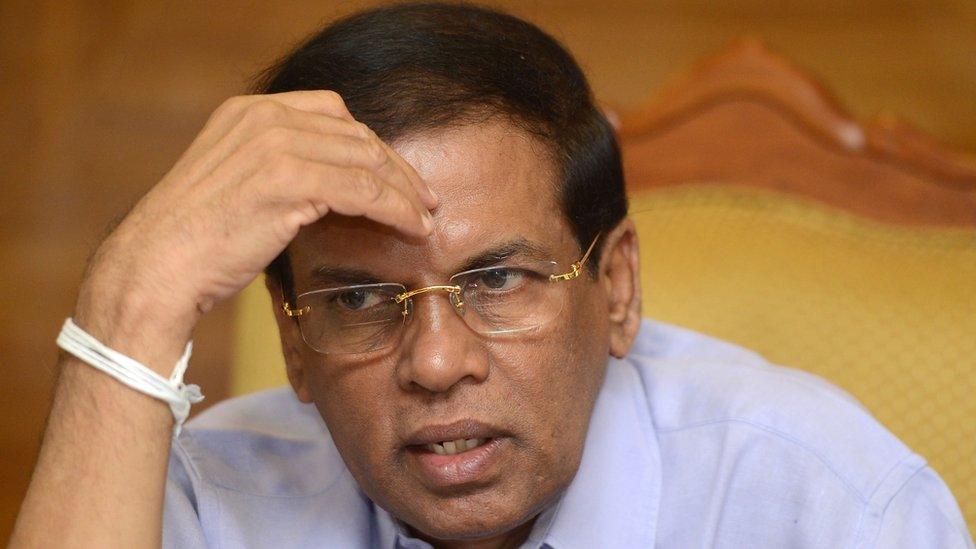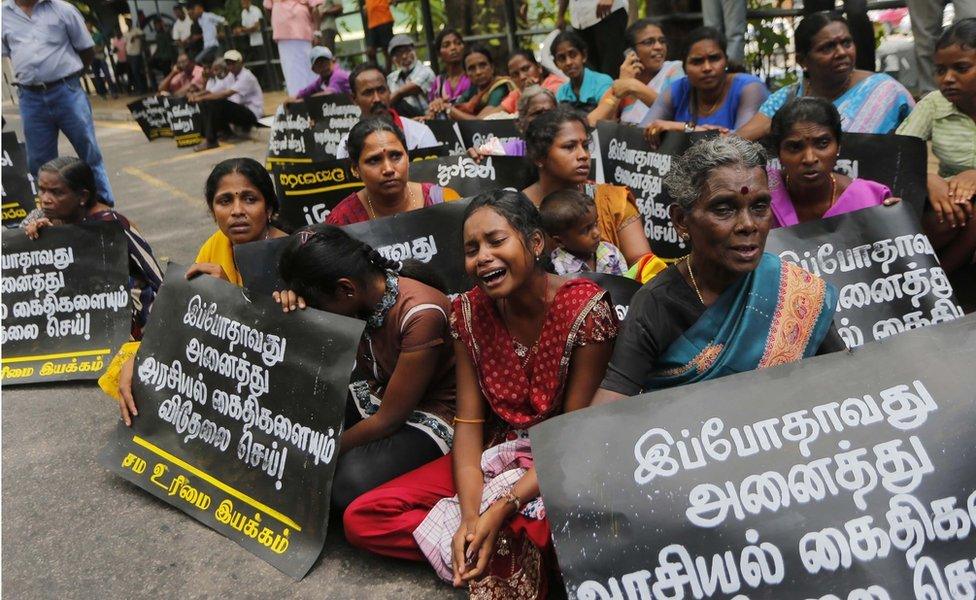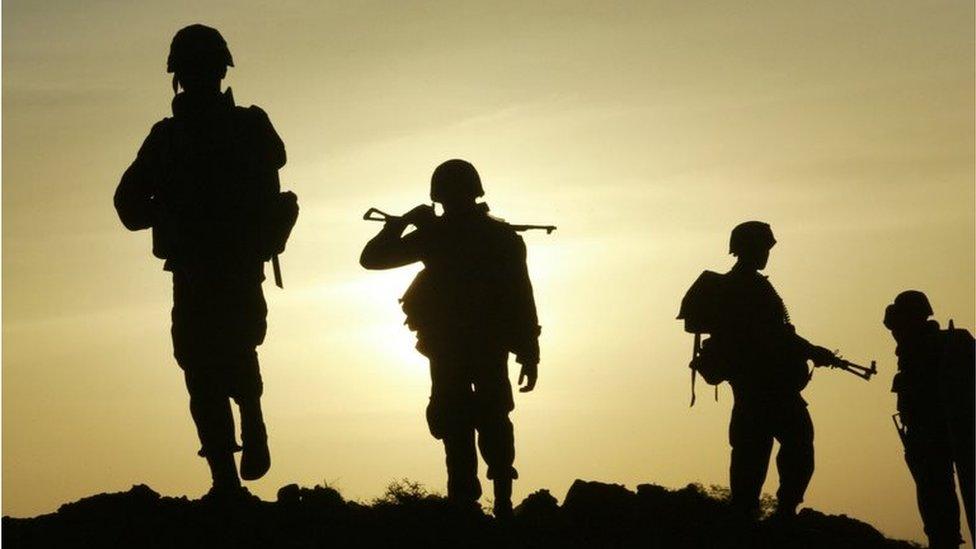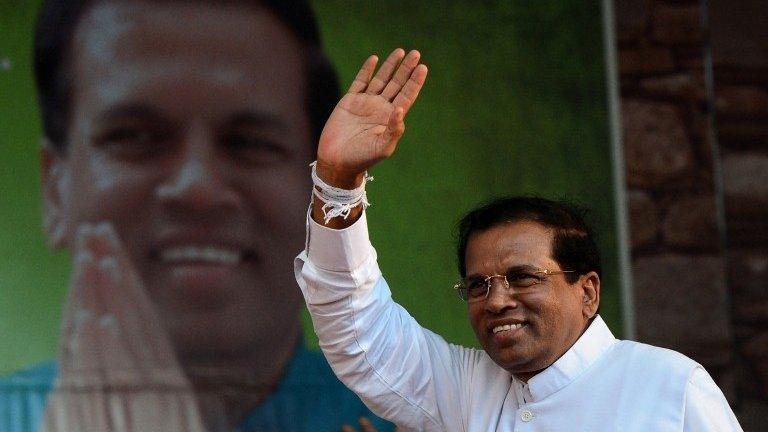Tamils 'still tortured' in Sri Lanka, say rights groups
- Published

Mr Sirisena came to power on 8 January last year
Two campaign groups have alleged ethnic minority Tamils in Sri Lanka continue to face torture, a year after President Maithripala Sirisena came to power promising reform.
They interviewed victims who said they were arbitrarily detained, tortured or gang raped by security forces.
The authorities denied the allegations.
Sri Lanka's long-running civil war between the government and Tamil rebels ended in 2009. Both sides were accused of committing war crimes.
'Well-organised machine'
South Africa-based group The International Truth and Justice Project, external (ITJP) said it spoke to 15 men and five women, most of whom were former Tamil Tiger fighters or child recruits.
All said they had suffered extreme violence, in some cases gang rape, at the hands of the police or military intelligence in the past year. They have now left Sri Lanka.
The organisation said a "well-organised machine" continued to torture and repress Tamils and it was not merely a case of a few "rotten apples".
Meanwhile UK-based group Freedom From Torture, external said it continued to receive "a high volume of referrals" for people allegedly tortured in Sri Lanka, including under President Sirisena's government.
It said that apart from the ITJP's cases, it had spoken to seven others - all of whom were Tamil - who said they had experienced arbitrary detention and torture by Sri Lankan army or intelligence officers.
Cabinet spokesman Rajitha Senaratne dismissed the allegations of torture, saying that as far as he knew the Defence Ministry "has not got any information regarding this".
"If they have evidence please tell them to send it to us - we will investigate the case."
Army spokesman Brig Jayanath Jayweera also rejected the reports.
"Sri Lankan media would have reported if someone was abducted or tortured. The press is free to report but not a single report on any abductions or torture was reported as they claim."

In October family members of detained Tamil detainees conducted a silent protest in Colombo calling for their loved ones' release
Mr Sirisena took power in 8 January last year, and has pledged a truth and reconciliation commission to investigate further into claims of atrocities in the country's civil war which lasted 26 years.
In October a government-led inquiry found that there were "credible" allegations that the army had committed war crimes during the conflict with the Tamil Tiger rebels.
Last month Sri Lanka's Foreign Minister Mangala Samaraweera announced, external that the government had signed an international convention banning abductions by the state or political organisations, and pledged the protection of human rights.
About 70% of Sri Lanka's population is Sinhalese Buddhist majority but it has a significant Tamil minority.
- Published21 October 2015

- Published9 January 2015
- Published14 August 2015
